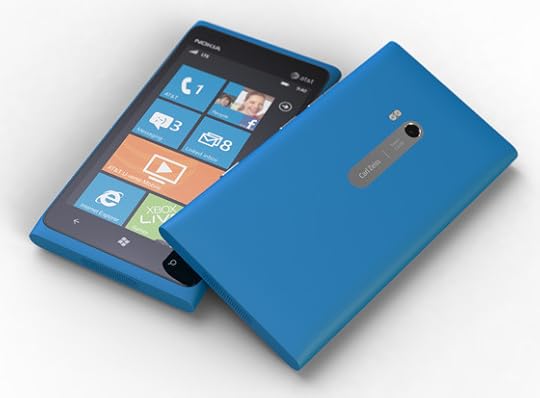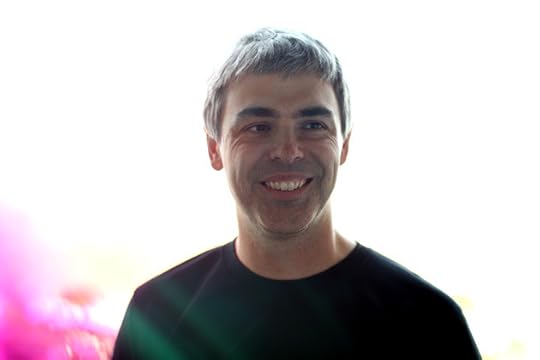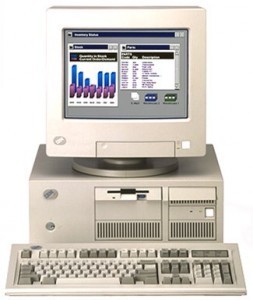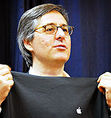Daniel Lyons's Blog, page 8
April 4, 2012
Mixed reviews for Nokia Lumia 900
Josh Topolsky is underwhelmed, and gripes that Windows Phone 7.5 still isn't where it should be. Walt Mossberg has similar reservations. Sam Biddle of Gizmodo thinks the Lumia 900 could save Windows Phone. Rosa Golijan of MSNBC says it's a stunner that could lure people away from Apple and Android.
I have been using the Lumia 900′s little brother, the Lumia 800, for a month, and I'm as impressed now as I was when I first saw this phone. The hardware is gorgeous — nicer than the iPhone, in my opinion. The software feels fresh and modern. Sure, there are far fewer apps, and for some people that's going to be a problem. But a lot of people just want the basics: email, Web browser, phone calls, maybe a few basic apps like Facebook and Twitter. And AT&T is going to sell the Lumia 900 for $100, which is a pretty amazing price for product that's this nice.
Larry Page: Steve Jobs wasn’t really angry about Android
That’s the biggest takeaway from this interview that Larry Page gave to my old pal Brad Stone of Bloomberg-Businessweek.
I think the Android differences were actually for show. … I think that served their interests. For a lot of companies, it’s useful for them to feel like they have an obvious competitor and to rally around that. I personally believe that it’s better to shoot higher. You don’t want to be looking at your competitors. You want to be looking at what’s possible and how to make the world better.
Page also takes a shot at Facebook:
I mean, our friends at Facebook have imported many, many, many Gmail addresses and exported zero addresses. And they claim that users don’t own that data, which is a totally specious claim. It’s completely unreasonable. One day you can import all of your Gmail contacts into Facebook and the next day try to export those out and they would not let you do that. It’s clearly for competitive reasons that they do that.
Larry Page: Steve Jobs wasn't really angry about Android
That's the biggest takeaway from this interview that Larry Page gave to my old pal Brad Stone of Bloomberg-Businessweek.
I think the Android differences were actually for show. … I think that served their interests. For a lot of companies, it's useful for them to feel like they have an obvious competitor and to rally around that. I personally believe that it's better to shoot higher. You don't want to be looking at your competitors. You want to be looking at what's possible and how to make the world better.
Page also takes a shot at Facebook:
I mean, our friends at Facebook have imported many, many, many Gmail addresses and exported zero addresses. And they claim that users don't own that data, which is a totally specious claim. It's completely unreasonable. One day you can import all of your Gmail contacts into Facebook and the next day try to export those out and they would not let you do that. It's clearly for competitive reasons that they do that.
April 3, 2012
25 years after OS/2, and the heady days of the PC revolution
Harry McCracken's article about IBM's introduction of the PS/2 and OS/2 (here on the Techland blog) brought back a flood of memories. It was 25 years ago this week:
On April 2, 1987, at twin press conferences in New York and Miami, IBM unveiled its plans to reinvent the PC industry which it had jump-started less than six years earlier with the introduction of the first IBM PC. The company introduced four new computers dubbed the PS/2 line, including an $11,000 model which it said was seven times faster than current models. The new products were rife with advanced features, including 32-bit processors, fancy graphics, 3.5″ hardshell floppy-disk drives and optical storage.
I was there at the event in New York. It was my first or second week on the job at PC Week. Russell Glitman, a veteran at PC Week and an old pal of mine (we'd previously worked together at a daily paper) took me along for my baptism by fire. I'd just joined from the Boston Herald and was brand new to technology. We flew down on what I think was the old Eastern Shuttle, hit the IBM event, which mostly puzzled me, and then Russell led the way to a fancy Indian restaurant where we wined and dined like princes.
It's hard to explain to young kids now what a blast those early PC years were. The market was booming. Lotus was the biggest software company, but Mitchell Kapor would still talk to you. Philippe Kahn would say outrageous things and play the saxophone at events. Bill Gates dirty-danced with PR flacks at Comdex parties. Microsoft was not yet big and bad and borglike; they were just Microsoft. Roger McNamee was an analyst at T. Rowe Price. Publications like PC Week and PC Mag were making ridiculous amounts of money. On Fridays our ad sales people used to celebrate by filling the water coolers with margaritas. We spent long afternoons in our cubicles playing primitive video games or sleeping off long drunken lunches. We had affairs with colleagues and did bad things in the conference room at night when we thought nobody was still in the office. We did terrible, ridiculous things at Comdex in Las Vegas.
It was probably the most fun I ever had at a job, with some of the best people I ever knew. And not until I saw that article on Techland did I realize that it was 25 years ago. Tempus fugit, as they say in Portuguese.
March 30, 2012
Month of Microsoft: Gmail v. Hotmail
My good friend Barbara Darrow of GigaOm just posted an awesome rant about Gmail and other Google apps. ("Hey, new-and-improved Google, please fix your apps.") This was prompted by a Marissa Mayer appearance where she said Larry Page is really focused on products and users, and really wants to streamline everything at Google. (Have you noticed lately, with Page's one-year anniversary as CEO approaching, the way the people around him are out beating the drums about what a great CEO he's been, and all the big changes he's making, and how it feels like a brand new place, and everyone is so excited, etc.? I'm waiting to see which publication gets the big Larry interview for the anniversary. I know it's not us. We tried, but Larry's PR person wouldn't even meet me for coffee. Oh well.)
Anyway, here is Barb's money quote:
So what explains the nightmare that is GMail? And, to put it gently, Microsoft Word doesn't have that much to fear from Google Docs. (This is coming from someone who is not enamored of Office's bloated feature set.)
I don't hate Gmail as much as Barb does, but I can tell you this. A few weeks of using Hotmail has been a really good experience. It feels cleaner and less cluttered and just all around like a nicer experience. And, no creepy ads that somehow know what's in your email and start trying to match it. Want to have fun? Start exchanging email with a friend and talk about hemorrhoids, or sex toys, or the new Patagonia Primo jacket, and then see what happens.
Yes, I realize it's just a computer that's "reading" my email. It still feels creepy. The problem is that even if it's just a computer doing it, it makes you aware that your email isn't really private, and that no doubt if some human inside Google wanted to read my email, they could. And yes, I know that this is always the case, with every mail system. And so, in a twisted way, maybe Google is doing us a favor by constantly reminding us that nothing we send over email is truly private. I think somehow I'd rather live with the illusion that the only people reading my email messages are the people to whom I'm sending them.
And frankly it kind of bugs me that someone is trying to "monetize" my email. And, it's pointless, because whatever I'm writing about in an email, I'm never writing that email hoping that somehow a computer will spot something in my message and deliver me an ad. I'm not writing email as part of a shopping expedition.
That said, the one problem with using a Live.com or Hotmail.com address is the stigma of having a Live.com or Hotmail.com email address. It marks you as a dork. All the cool kids are on Gmail. It's not as bad as having an AOL address, but almost.
The other problem is that since Hotmail and Live.com have been around so long, all the good names are taken. So, for example, I was unable to get danlyons, dlyons, dan.lyons or dan_lyons and instead had to create a name with a number at the end.
Here's an idea: Someone (like Microsoft) could create a brand new email system where we could all start fresh and choose good names. And make it cool, somehow.
And Google could keep talking about focus and streamlining and user experience, and they can keep saying that they're going to fix Gmail and fix their apps and make their products nicer looking and easier to use. But I don't think they'll ever get there. It's not in their DNA. It's just not.
And for all the talk about less clutter, a lot of what they've done recently (Search Plus Your World, smearing Google+ across everything) has made things more clusterfucky, not less. And what genius at Google came up with a product name that reduces to an acronym (SPYW) with the word "spy" in it?
The fact is, Google is starting to become Microsoft: the gang that couldn't shoot straight, and always seems to be acting to its own advantage rather than to the advantage of its customers.
Which means Microsoft has the opportunity to go be someone else. I hope they take it.
March 28, 2012
Month of Microsoft: Xbox is great, please give us more of same
Farhad Manjoo makes some really good points in this piece called "Apple Doesn't Need to Make the TV of the Future" arguing that Xbox already does many of the things that people keep dreaming Apple might do with an Apple TV product sometime in the future. Things like voice commands and hand commands are already there with Xbox and Kinect, and if you haven't used one yet, you should. It's amazing. And yes, Microsoft has run ads about this, but for some reason everyone in the world has heard of Siri but not as many are aware of the much cooler things you can do with Kinect. I brought this up during my visit to Microsoft and we talked a bit about why this is the case and the answer just seems to be that Apple is really, really good at marketing.
The truth is that Xbox is amazing and it keeps getting better, as happened this week when Microsoft added HBO Go, Xfinity and MLB.TV to its video offerings. Little by little Microsoft is building the future of TV right before our eyes. But: why can't they make this thing more friendly for regular people? As a friend wrote to me last week in regard to my "Month of Microsoft project:
So here's my biggest question I'd ask a Microsoft executive if I was next to one on a plane: Why aren't trying to smash Apple in the living room more aggressively? It's the one big territory not yet conquered by Cupertino. They have hug leads in mobile phones, tablets, and what remains of the MP3 player market. But in the living room – TV, really, but also networked home audio – Microsoft has what could be called a lead. My wife and I have an XBox 360 and it's great. We watch Netflix on there all the time, my wife plays games, I just signed up for Hulu Plus which is also on there. My sister in law buys Zune Store movies all the time to watch on her big screen via the 360.
But it doesn't seem like they're really seizing the opportunity to leave Apple in the dust. Two big things Microsoft isn't fixing: You need a $50 annual subscription to something called "XBox Live Gold" to make Netflix and Hulu work, which is confusing (not expensive, just confusing – Xbox Live Gold??). Number two, the box is designed for hard core gamers. Why isn't there a cheaper spinoff for those of us who don't care about games? I mean literally you have to BOOT UP the remote, because it's not just a remote, it's a hard core gamer controller which you can plug a two-way headset into for online gaming. But it's way over the top for simply media hub stuff, to have
to hold down a button and wait 20 seconds to use the remote because it's booting up.
So meanwhile, while Microsoft is still targeting the Xbox to dorm room nerds who happily drop $300+ on a console and have time to learn what Xbox Live and Xbox Live Gold and Xbox Live Family Pack are, Apple is out there with a very simple, $100 box that does Netflix out of the box (no membership fees), does photo slideshows on your TV and plays whatever is already on your iPhone. It's like Microsoft is PURPOSELY trying to squander its advantage in all the typical ways – over versioning (Xbox Live Blah Blah is a lot like the fiasco with Vista Ultimate, Vista Home, Vista Standard, Vista Professional etc etc), clinging too tightly to old markets (gamers, in this case, Windows in the past)…. I just don't get why they aren't doing a simpler version of the Xbox for people who want to watch movies on their TVs. Or at least dropping the stupid Xbox Live Gold requirement for Netflix.
I get it. I totally do. The confusion factor is real. The controller is goofy. Heck, the box itself is goofy too; why not do something sleek and minimalist that would look good in my living room? The UI looks great, but the TV stuff gets buried under a menu system. And why not simplify the process with fewer versions?
I've signed up for Xbox Live Gold. I've signed up for a Zune Pass. I even figured out how to use the Zune Pass on my Xbox. Great! Then I tried to figure out how to make it work on my Windows Phone. It's possible, but it's a bit of a science project.
As I wrote to one of my Microsoft buddies the other day: The main thing I was hoping to achieve by going with all Microsoft products was a sense of synergy among all these pieces and I don't think I've unlocked that yet. And I don't want science projects.
My biggest "theme" right now is that it seems as if Microsoft has lots of great products but they all come from different groups, and different places. I wish Microsoft would come up with a single grand unifying vision that brings all parts of my life together — where the focus wouldn't be on products but on the people using them, and the things we want to do. And it would all be easy to figure out and easy to use.
(FWIW, my buddy says Microsoft is on a path toward convergence, and that a lot of the stuff I'm talking about will be addressed over the next year.)
For now, Microsoft provides you with lots of different ways of doing the same things. They're almost giving you a toolkit, a set of Legos and you can assemble them in different ways.
Apple is trying to do the more curated approach where it's like, Just buy this, this, this and this, and we'll make them all work together, as long as you only want to do A, B, C, and D, and only in the ways we allow. Want to watch something on your iPad and then toss it to your TV? No worries.
But even Apple hasn't figured out how to sell the grand unified vision. Maybe because they also can't deliver that vision.
Microsoft's approach probably gives you more flexibility and the ability to arrange things in different configurations — but at the price of complexity. Apple is simpler but has less flexibility.
The issue I'm having, and the one I'm hoping Microsoft (or someone) can solve is that I just have too much stuff in too many different place.
In my living room I have a first-generation Apple TV box, a Roku box, and a DVD player, plus a cable box. I'm thinking about adding a Boxee box too just because I want to see how it works.
In my basement I have another first-generation Apple TV box, plus the Xbox. I can watch Netflix about a dozen different ways, or so it seems. Or I can rent/buy movies on iTunes, Amazon, Verizon FIOS On Demand, etc.
But what I really want is one ring to rule them all.
As for my personal content, I have photos on flickr, on picasa, on MobileMe. I have videos on those plus on YouTube. I have documents on Google Docs, and Dropbox, and then across a bunch of local drives. I have backups on Carbonite and Mozy, though one or both of those might have expired.
At this point when I think of some movie I've made or photo I've taken I don't even know where to go look for it.
I just have all this crap all over the place and I want some company (hint hint, Microsoft) to come along and give me one place to put everything, forever. With simple screens (phone, tablet, laptop, TV) with UIs that all look the same and can all pull anything from the central repository.
I don't want to do science projects. I don't want to play systems integrator, not even once, and definitely not on a rolling basis, integrating new devices and new services all the time, whenever there's a new device or a new piece of software. I'm sick of the constant change — like when Apple took us all from .Mac to MobileMe and now to iCloud.
Please, someone, figure this stuff out once and for all, and just do it. I don't care who you are, I'll be there. This isn't religion for me. If it's Apple, fine. Microsoft, fine. Hell, if AOL comes out with the solution I'll go with them. I really don't care. I just want this done. And I'll gladly pay for this. I don't need it to be free. In fact I don't want it to to be free, because "free" means targeted advertising and loads of other crap that's worth than just paying money. Just charge me. I have the money, and I'm willing to spend it if you can solve my problem.
March 26, 2012
Android phone or condom? By the name alone, it's hard to tell
A dear friend just sent a link to which compares the names of various condoms with the names of various Android phones, and finds a stunning overlap. Desire, Ultra Thin, Sensation, Indulge, Intensity, Wildfire — you get the idea. Nice work. I would note that my beloved Droid Razr Maxx is not on the list, but probably should be.
March 23, 2012
Month of Microsoft: Ouch, Rovio. That hurts.
Rovio, maker of Angry Birds, tells Bloomberg it won't create a version of Angry Birds Space for Windows Phone, because the platform is so tiny. "We want to be on all screens, but we have to consider the cost of supplying the smaller platforms," a Rovio guy says. I don't really give a crap about Angry Birds, but still: Ouch.
March 22, 2012
Why I love the Alta Peruvian Lodge
If you've been there, you know: It's been around since 1950, and it's not the swankiest place in the world. A lot of the rooms have just a sink, no bathroom. There's even a "dorm" which is basically a big room with 12 bunks in it, inconveniently located directly above the (often very noisy) bar. The rooms are small, old-fashioned, and there's no TV, and the staff are mostly a bunch of kids who are there primarily for the free season pass. It's a weird, funky, cozy place, where people leave their ski boots in the hallway outside their rooms and wear pajamas to breakfast and you're basically all kind of piled in together, on top of one another. Gemutlichkeit is the word a German-speaking friend of mine once used to describe the vibe there.
And: the place sits at the foot of Alta, which is a pretty tough location to beat. There is nothing to do at Alta except ski. There's no shopping. No "base village" to speak of, and no restaurants apart from the ones in the handful of ski lodges. At the Peruvian there's a big living room with old couches and chairs and a fireplace and a machine that makes coffee and hot chocolate. There's an outdoor pool and two hot tubs, and every afternoon they put out free snacks and people roam around in white robes and flip-flops. There's a big screen TV in a room downstairs, where you can watch TV with other people. The only entertainment nearby, advertised in a flyer on a bulletin board, was a production of "Romeo and Juliet" by some local schoolkids, put on at "Our Lady of the Snows," a little concrete chapel on the canyon road. The meals are pretty good, but there's a catch: you get seated with a bunch of other people, which is something you either love or you hate.
I used to stay there a lot when I was a single guy, and had some fun visits, including a memorable New Year's Eve. It was the kind of place where you met people and went skiing together and maybe you stayed in touch with them after the season ended. My wife and I went out a few times, too, before the kids came along and we stopped traveling out West for skiing. But our kids are now 6 and so last week we made the trek out to the Peruvian, with our fingers crossed, not sure how things would go and wondering (at least I was) whether we had made a huge mistake. Maybe the place had changed. Or maybe we'd changed, and we were going to cringe to think that we once actually liked this place, which is, as I say, not the fanciest place in the world, and not even the fanciest place at Alta, and in fact is probably the least fancy place we've ever stayed other than an AMC lodge in New Hampshire.
But no. In fact, with kids along, it was even more fun. The skiing was not so great — it was late in the season, and too warm, so everything melted in the afternoon and then froze overnight. Meaning: icy in the morning, slushy in the afternoon. But still, it was good enough, and frankly it was better than what we got in New England this year. And how can you complain about sunny spring skiing?
The good part, however, was the people. In that regard, the Peruvian hasn't changed. We met a family whose kids became pals with ours. We met a track coach from Georgetown, a paparazzo from Maui, a pediatrician from Philadelphia, a lawyer from LA, a professor from Indiana. Just now I got an email from the manager of the lodge telling me that one of the people we met had asked him to pass along her email address to my wife, so that they could stay in touch. This woman and her husband have been visiting Alta, and staying at the Peruvian, every year for 39 years. We spent a lot of time with them on this trip, and I get the sense that we'll see them again. At least I hope we will.
This is why I fell in love with the Peruvian, all those years ago. And it's why we'll go back again. It seems to me that there aren't so many places like this around anymore, places where you can unplug from the world and meet some new people and make new friends. I hesitate to recommend it, because maybe you like fancy hotels and first-class accommodations, and maybe you like to keep to yourself rather than be thrown in with a bunch of strangers, and if that's what you like, there are loads of places where you can go and have a great time, places with ski guides and mountain ambassadors and concierge service and great spas. But I think there may be only one place as weird and funky and cozy as the Peruvian. And the fact that it's still there, and still the same, is a very good thing.
Month of Microsoft: The biggest surprise is I'm not missing Android
I'm a couple weeks into the experiment and one thing that strikes me is that I'm really not missing Android, which is odd because that's the adjustment I had expected to find the most difficult. There are lots of little things that I like about the Android software. And in terms of hardware I really love the Motorola Droid Razr Maxx that I've been using for the past few months. I didn't want to give it up. But it turns out that the transition on mobile has been the easiest thing of all. For me, anyway. Your mileage may vary. I'm dividing my time between two phones: an HTC Titan with a big screen, and a very sleek Nokia Lumia 800 which is about the size of an iPhone but actually has (dare I say this?) a sleeker design.
I'm not sure why switching phones has been so easy. It may be because I'm not a heavy app user, so I'm not getting pried out of a bunch of apps that I just can't live without. And/or it may be because Microsoft did such a nice job with Windows Phone. If you haven't played with a Windows Phone yet, you should check it out. It's a nice environment to live in. Different from Apple/Android, for sure. The best thing I can say about it is that it feels more modern.
The desktop switch has proved more troublesome. I'm mostly using Windwos 7 on a Lenovo W520 hooked to a big screen. I can find way around pretty easily. But I can't make myself fall in love with Internet Explorer. I miss Chrome. I'm not having any big huge glaring problems. It just mostly feels unnatural to me. It's like you've been wearing the same pair of shoes for a long time and now you put on some new shoes and they just don't feel right. You're not getting blisters. But it just doesn't feel the same.
Maybe this will wear off. Maybe I'm just biased, and can't filter that out. Microsoft is pushing a new campaign called The Browser You Loved to Hate" in which they admit that IE hasn't always been so great but that, guess what, the new version, IE9, is actually pretty good. I got a good presentation on the virtues of IE9 during my visit to Microsoft. Hardware acceleration, speedy performance, the ability to snap a bunch of tabs into a single group that loads together. Yes, nice.
Using Hotmail instead of Gmail has been a totally invisible switch. I simply set up my Gmail to forward to Hotmail and I'm good to go. (Confession: With some correspondents I've kept using Gmail simply so that I won't confuse them. If/when I decide to switch to Hotmail permanently then I'll drop this on them. For now I don't want to inconvenience people.)
Next challenge: Windows 8. Microsoft sent me a Lenovo U300 ultrabook loaded with both Windows 7 and a preview of Windows 8. I had a few minutes to play with Windows 8 but will spend more time wtih it today. First impression: I really like the Metro interface, and I think it's a good idea to start trying to make smartphones-tablets-PCs all look and feel the same. (Apple is doing this too.) However, there's going to be a learning curve. Metro is nice, but not entirely intuitive. Clicking through to desktop view makes things more familiar, except there's no Start button anymore. Argh! Thing is, during my visit to Redmond I had a demo of Windows 8 and with an experienced driver at the wheel everything goes great. And I was able to easily pick things up and get going with it. Now, a few weeks later, here on my own, I find myself dicking around a bit.
Two thoughts: One, I didn't pay close enough attention during my tutorial in Redmond. Two, even so, I don't think Windows 8 is going to be too hard to figure out.
Nevertheless, I'm guessing Microsoft is going to hear some bitching about this. There's no way around it. Windows 8 is different. The key will be convincing people that it's worth taking a little time to learn a new way of doing things. People hate change, unless you can convince them that there's some very clear and easy to define benefit. Ball is in your court, Microsoft.
I'm off to start tinkering with the U300 and Windows 8. More later.
Daniel Lyons's Blog
- Daniel Lyons's profile
- 7 followers







